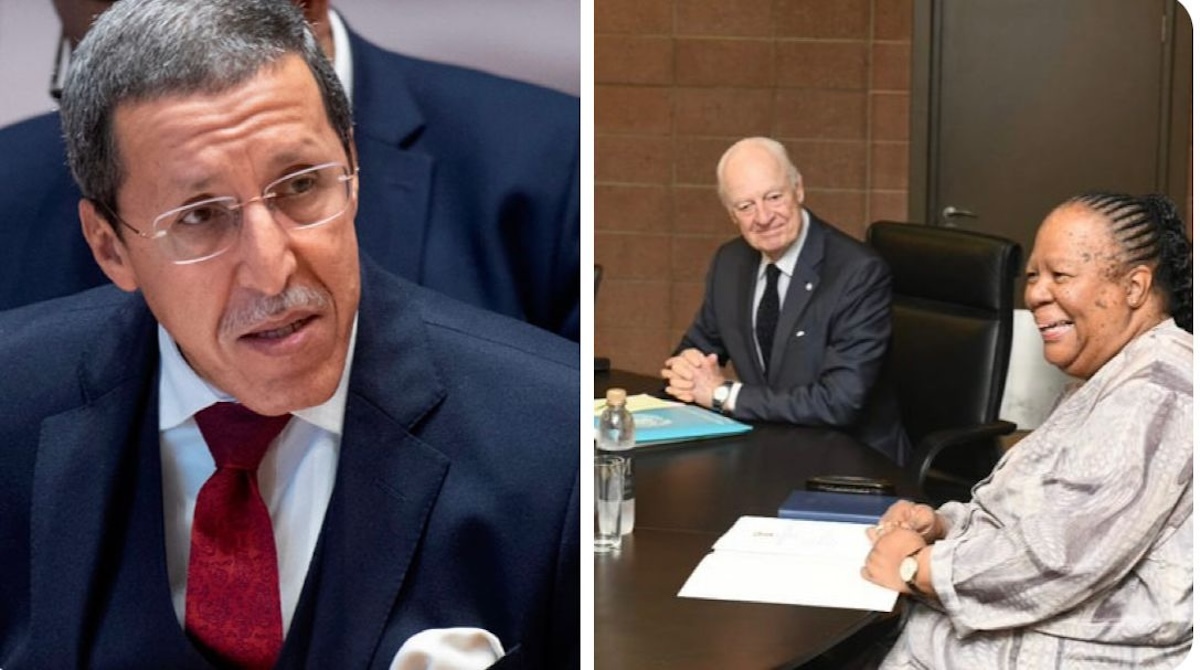Morocco outraged by South Africa's interference with UN envoy for the Sahara

The Moroccan ambassador to the United Nations, Omar Hilale, has been charged with expressing the deep unease of his government with the surprise and unexpected visit to South Africa of the UN Secretary General's special envoy for the Sahara, Staffan de Mistura, and the political consultations with the government in Pretoria.
Hilale told the Moroccan agency MAP that Morocco was not consulted at any time and was never informed of the matter. On the contrary, "as soon as we learned of the plan for this visit, several weeks ago, we expressed directly to Mr. de Mistura and to the United Nations Secretariat Morocco's categorical rejection of this trip, and we reject any interaction with Pretoria on the question of the Moroccan Sahara, for legitimate and objective reasons. I hope this is not a challenge to Morocco by Mr. de Mistura, but may simply be a miscalculation of South Africa's true position." In any case, Morocco clearly warned against the implications of his trip for the political process.
In its communication, Morocco reminded the Personal Envoy of the fundamentals of his mandate, which were represented in the letter of his appointment by the UN Secretary General, which specifies that he should work exclusively with the four parties involved in the political process, in addition to the Security Council resolutions since 2007, including Resolution 2703 of last October 30.

These decisions in no way refer to South Africa, nor do they indicate any imaginary role or contribution by South Africa in the political process. In listing the numerous elements "that exclude South Africa from any interference in the #Western_Sahara_Occidental file, suffice it to recall that this country recognizes the fictitious entity and supports the Polisario politically, diplomatically, mediatically and militarily".
For these reasons, assured the ambassador to the UN, "Morocco will never allow South Africa to play any role in the Moroccan Sahara dossier. Pretoria was and remains toxic for the Moroccan Sahara issue" and stressed that "I am very surprised because I do not know what the South African Ministry of Foreign Affairs is talking about. Morocco is not aware of any approach. If there is any attempt, the discussion must take place with Morocco and other parties and in no case with South Africa".
For Rabat, there is an approach according to the rounds, with the exclusive participation of Morocco, Algeria, Mauritania and the Polisario, as recommended by successive Security Council resolutions. Morocco therefore hopes that De Mistura will devote his efforts to convince Algeria to return to the negotiating table, as was the case in 2018 and 2019 because "he has a clear and strong mandate from the Security Council to facilitate a realistic, practical, lasting and negotiated political solution to this regional dispute."
In this context, Hilale remarked that King Mohammed VI led the way towards a final solution to this regional dispute through the Moroccan Autonomy Initiative, within the framework of Morocco's sovereignty and territorial integrity.
He added that the Alawite monarch's vision draws its strength from international law and its legitimacy from its compatibility with the norms specified in Security Council resolutions. And he sentenced affirming that "the broad results and international support for the Moroccan Sahara and the autonomy initiative confirm daily a majestic vision of our beloved Saharawi regions as Moroccan once and for all".








